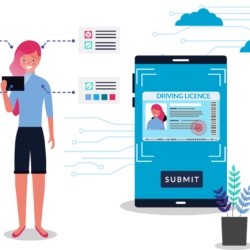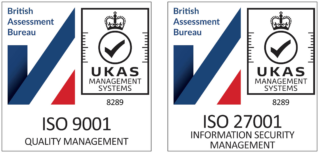Identity document verification systems – 5 reasons why they’re best for finding fake identity documents

The scale of identity fraud is shocking. In 2019, CIFAS, the National Fraud Prevention service reported that identity fraud had reached a record level in the UK. Our experience shows us that criminal networks are becoming increasingly sophisticated and even security experts can’t simply rely on traditional visual methods of detection, such as magnifying glasses and ultraviolet light sources to discover fraudulent identity documents.
Since most public and private institutions don’t employ a resident Identity Fraud Expert, the best way to confidently stay one step ahead of fraudsters is to have access to the most up-to-the-minute technology and data at your fingertips. This role is now filled by identity document validation technology.
The UK Government’s guide on document validation software and hardware states that electronic scanning “provides a quick and easy way to establish the authenticity of documents presented for identity verification purposes. Scanners can play an important role in supporting front line staff to screen out counterfeit documents.”
Identity scanning technology has now taken a front line role in detecting forged identity documents. HR departments and security managers within the NHS, Government bodies, academic institutions and many private-sector employers across recruitment, construction, retail, facilities management, care and others, are taking the lead in the use of this technology. They are finding that it’s the most accurate and cost-effective commercially available solution to assess identity documents. Read on to discover 5 reasons why…
1. They’re ACCURATE
Identity document validation systems use an identity document, either a copy captured on an App / flat-bed scanner or the original document. They then analyse the image and embedded security features, including, where applicable, the RFID chip, and then compare it to data captured by the OCR. In some cases, both national and global databases are used to confirm if the document presented is genuine or not.
Checking technology is very effective when compared to a basic visual inspection by a person with limited training in examining documents. Most front-line staff are simply not trained to a high enough level to manually recognise fraudulent identity documents
2. They’re QUICK
With millions of identity documents being scanned by UK organisations every month, speed is often of the essence. Identity verification software can process an identity document and deliver the results in a matter of seconds, potentially delivering thousands of results a day. ID verification systems can read identity documents, such as passports and driving licenses, as well as other official documents used to prove identity.
3. Avoids NON-COMPLIANCE
Failure to comply with Government regulations can result in fines, and even imprisonment, if an individual or organisation is found to be complicit in identity fraud. Identity document scanners go a long way to protecting a business because they can easily show that due diligence has been followed.
Not only are there many individual pieces of legislation to comply with, but any screening must not interfere with an individual’s right to privacy. Identity document verification systems tick all the legislation boxes and it is then up to your organisation to handle the data in an appropriate manner.
Want to find out more?
4. Maintains CONSISTENCY
Document verification systems, either office-based or remotely accessed validation systems, enable a wider and more consistent scrutiny of documents than is possible manually. Staff who are handling a wide range of official global documents often don’t have sufficient expertise to recognise all kinds of fraudulent identity documents. With a validation service in place, this expertise is no longer critical as the software will instantly assess whether an identity document is true or false.
There’s also the question of fairness – scanning systems will check everyone in a consistently non-discriminatory manner. There is always the risk of a human element of prejudice creeping in to manual decisions when an applicant appears to be different from ‘the norm’.
5. Long-term AFFORDABILITY
Identity document verification system suppliers offer a variety of financing options ranging from outright purchase with licensing and support, through to a range of rental options. Some systems can even be purchased on a ‘pay as you use’ credit basis. In either case, the initial investment in this verification technology is usually fairly low and the systems can be rolled out quickly and easily without significant investment in additional IT technology.
If you or your staff have the responsibility of ensuring that identity documents presented to you are genuine and that the holder is the rightful owner, a document verification system is the most accurate tool available. Your HR Director will appreciate that the consistency of the data output negates the need to hire an identity fraud expert. And because they’re affordable and help the company to stay on the right side of government legislation, even the most cynical of Finance Directors should be persuaded that they’re the best option for detecting fake or fraudulent identity documents.
Want to find out more?
If you’d like to discuss how our services could support you, please get in touch. We’d be happy to arrange an online demo.
Sign up to receive updates
Receive notifications from TrustID direct to your inbox. Simply fill out your email address in the form below.
Want to find out more?
We’d be really happy to chat through your requirements and offer advice on the best service for your business.
Tel: 0118 466 0822 or email us.
Request a callback


